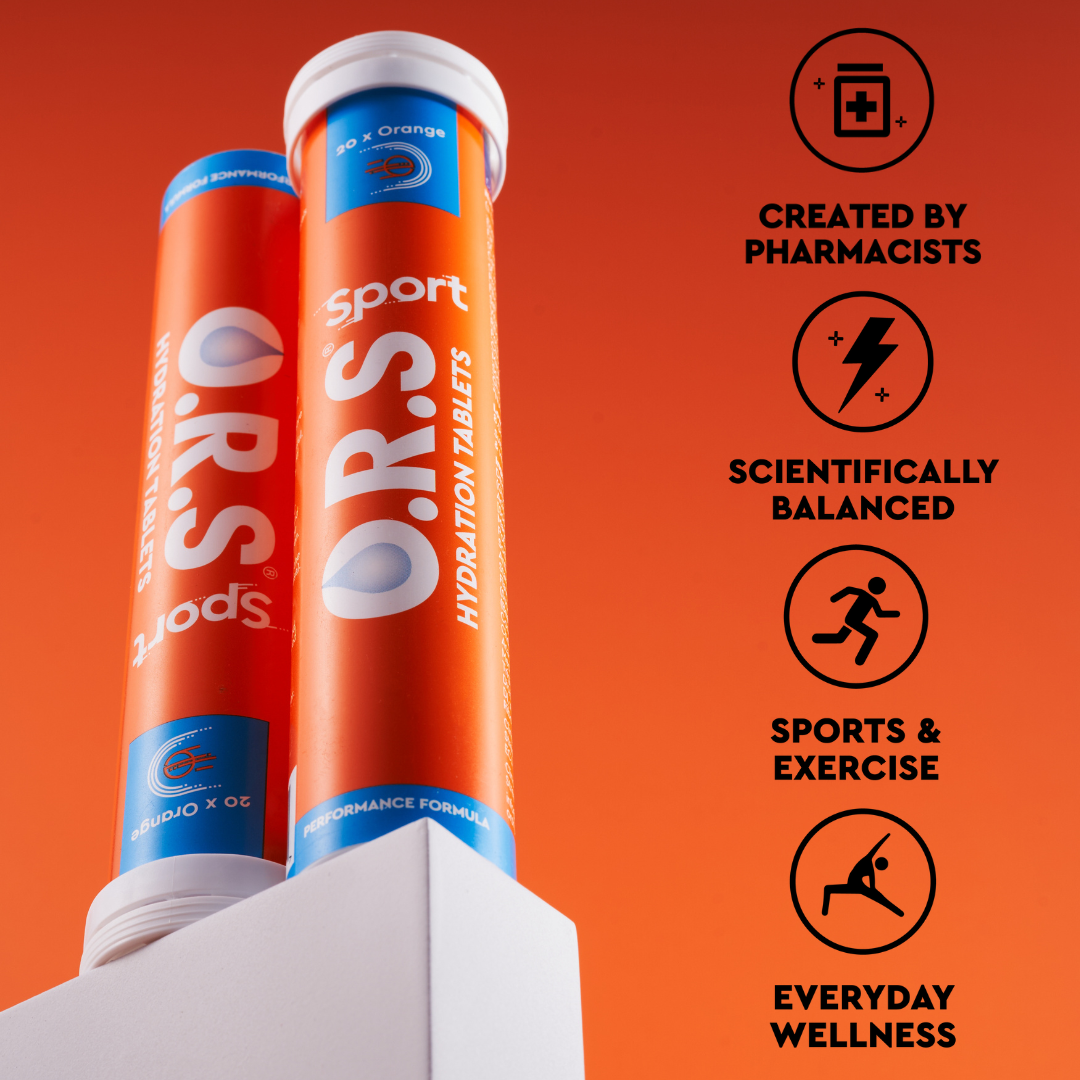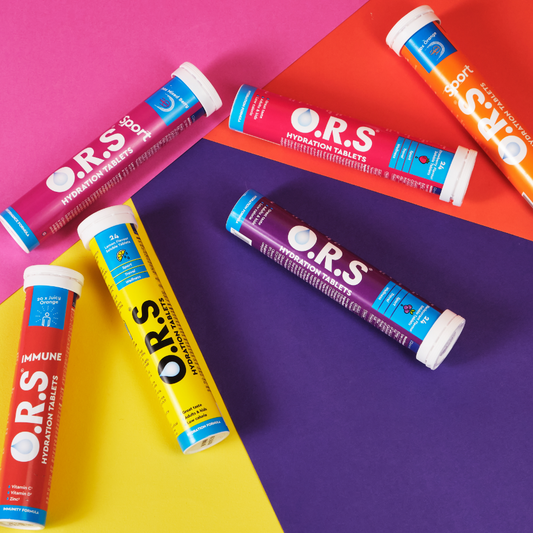
How Can You Tell If You Have An Electrolyte Imbalance?
Share
Electrolytes are vital for our bodies to function. You’ve probably heard about the need to replace your electrolytes if you’re doing a hard session in the gym, if you’ve been sick or even if you’re hungover. We’re going to explore what electrolytes are, how they support your body and how you can tell if you have an electrolyte imbalance.
We’ll also offer some tips on what you can do to correct that imbalance – such as by regularly using hydration tablets, but more on that shortly!
What are electrolytes?
A simpler way to think of electrolytes is as minerals that are soluble in water. Given that our bodies are approximately 60 per cent water, it makes sense that these substances play an important role in many of our bodily functions.
The main electrolytes present in our blood and cells when we’re fully hydrated and healthy are sodium, potassium, chloride, magnesium and bicarbonate. These minerals give off an electrical charge that can be either positive or negative when they dissolve into our body’s fluids.
What do electrolytes do?
In short, the electrical charge produced by electrolytes is what helps power a whole range of essential functions in our bodies. They are most commonly spoken about in relation to hydration, but they perform far more roles than this.
They help to balance our blood pressure and blood acidity, they are essential for effective nerve and muscle function, they also maintain our cardiac rhythm. What’s more, they are important for moving nutrients around in our bodies.
In many ways, they are overlooked essentials in our lives and support us in far more ways than we perhaps realise.
Where can I get electrolytes from?
Your body can produce its own electrolytes, but you can also get them from the food and drink you consume. The best way to ensure you keep the right balance of electrolytes in your body is to eat a balanced diet.
This is one that’s rich in vegetables, leafy greens, seeds, nuts and fruit. Certain dairy products, fish and lean meats can also contribute to our electrolyte intake. What we drink also has an effect and this is where electrolyte supplements like hydration tablets can come in handy.
These can be especially helpful when you’ve been sick or had diarrhea, which will often result in your electrolytes becoming depleted, or if you are regularly doing heavy sessions in the gym where you lose electrolytes in your sweat.
How can I tell if my electrolytes are imbalanced?
The main signs that your electrolytes might be imbalanced are fatigue, muscle cramps, a headache, nausea and confusion. You may also experience a change in your blood pressure or heart arrhythmia.
It’s important to note that an electrolyte imbalance can mean you either have too few or too many of certain electrolytes in your body. The easiest way to find out if your electrolytes are imbalanced is through an electrolyte blood test.
Once you know which of your electrolytes is out of balance, and by how much, you can take the appropriate course of action to correct the imbalance.
What might cause an electrolyte imbalance?
For most of us, the most likely cause of an electrolyte imbalance is dehydration – either from not drinking enough, from having a prolonged bout of vomiting or diarrhea, or from excessive sweating, such as if you have a fever.
Luckily, this is a relatively simple fix as you can usually correct the imbalance yourself by drinking an oral rehydration salt (ORS) solution. If you know that you regularly struggle to drink enough throughout the day, you could consider using everyday hydration tablets to keep your body fuelled with the right minerals.
There are a number of more serious causes of electrolyte imbalance, including kidney disease, liver disease, cancer and cardiovascular disease. If you are suffering from any of these conditions, your doctor will likely monitor your electrolyte levels to ensure they remain in balance.
Another cause of an electrolyte imbalance is overhydration. In this instance, you are likely to find that your body’s sodium levels are too low. The solution in this case would be to reduce your water intake.
However, if you are unsure about whether you have an electrolyte imbalance and are experiencing prolonged or severe symptoms, it’s essential to contact a doctor rather than try to fix the problem yourself.
Ultimately, our electrolytes are essential for our bodies to function as they should, so it’s important to be aware of how you’re consuming them and what you can do to optimise your intake of the different minerals your body needs.







